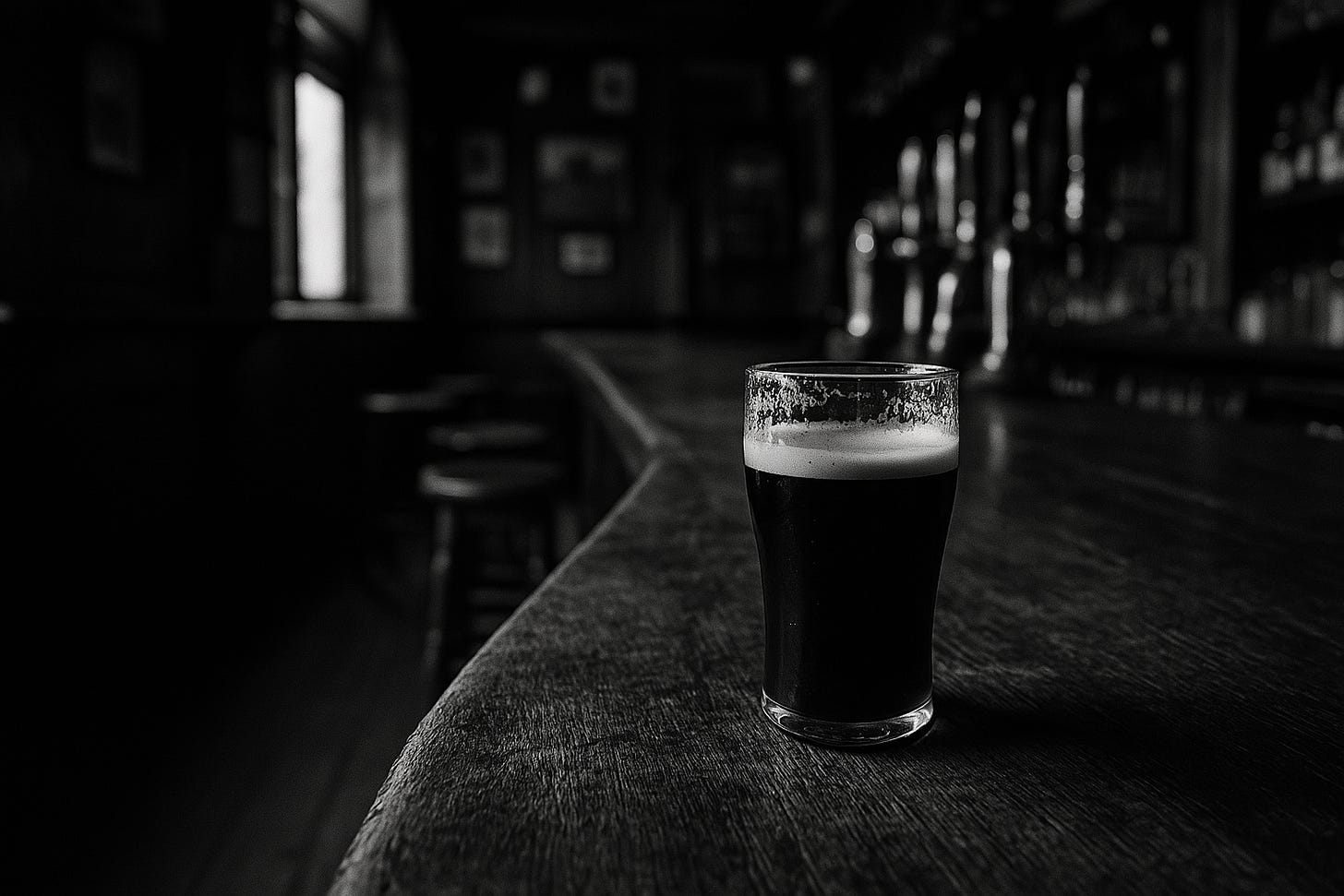The £6 Pint
There’s a certain charm in walking into a pub, ordering a pint, and settling into the familiar comfort of well-worn rituals. But lately, as prices creep steadily upwards, even that simple pleasure has begun to feel like a quiet luxury. Most will chalk it up to inflation or supply chain woes, but few realise just how much of their pint is vanishing not into the pockets of greedy landlords or crafty brewers, but straight into the coffers of the state.
Let’s take that now-familiar £6 pint and consider; where does the money actually go?
At first glance, it’s simple enough. The pub keeps a cut: roughly £2.45. The brewery gets around £1.25. Distributors, maybe 20p. And then there’s the government’s share: a sizeable £2.10, made up of VAT and alcohol duty. That’s 35% of the pint’s cost, neatly siphoned away before you’ve even had a sip. And yet, that’s only the surface layer of taxation. The truth is far more intrusive.
What most don’t see is how the state inserts itself at every stage of the process. The pub is taxed not only through the products it sells but through business rates, National Insurance contributions, licensing fees, and VAT on utilities and services. Staff are taxed on their wages; employers taxed again for the privilege of employing them. Even if a landlord manages to turn a modest profit, it faces corporation tax. Conservative estimates suggest that around a third of the pub’s cut, about 85p, ends up back with the government.
Then there’s the brewery. It contends with its own barrage of fiscal burdens: production duties, energy levies (especially under the Net Zero nonsense), compliance costs, employer taxes, and corporate taxation. At least another 30p from your pint flows out of the brewery and into the state’s grasp.
Even the 20p going to distribution isn’t left untouched. Fuel duty, vehicle excise, VAT on logistical services. It all adds up. A fiver’s worth of beer might only have 20p of distribution cost, but even that sliver gets a bite taken out of it.
Add it all up and what emerges is a rather sobering conclusion: over £3.30 of your £6 pint - more than 55% - ends up in government hands. Not just once, but repeatedly, layered at every stage of production and sale. The state doesn’t merely tax the drink; it taxes the people who make it, move it, and serve it, all while convincing the average citizen that it’s just the price of keeping society running.
But where does this money go? Roads and schools, we’re told. Yet the NHS remains perpetually strained, infrastructure languishes in bureaucratic limbo, and every new budget seems to call for more “tough decisions.” Meanwhile, pubs continue to close - more than 30 a month according to industry data - while independent brewers fight for survival. The costs are rising, but it’s not because the producers are greedy. It’s because they’re being taxed into oblivion.
This isn’t merely a technical economic issue; it’s a philosophical one. It speaks to the role of the state in everyday life. At what point does taxation cease being a means of funding legitimate governance and become a form of silent coercion? At what point is the pint not yours, but merely leased from the state with a temporary licence to enjoy it?
I would argue that we passed that point long ago. The state’s role should be limited to protecting individual rights, not draining value from peaceful transactions between consenting adults. A pint is a private contract, not a public good, and certainly not a piggy bank for the Treasury.
In a freer society, the price of a pint would reflect the cost of ingredients, production, distribution, and profit, not layers of state interference. VAT would be scrapped. Alcohol duties reduced or eliminated. Business rates reformed. Pubs would compete fairly, free from the burden of micromanaged compliance and paternalistic public health directives. And perhaps, in such a society, we’d see more pubs open, more communities revitalised, and more citizens treated as adults capable of making their own choices.
Until then, the next time you raise a glass, consider this: you're not just toasting with friends. You’re tipping the state. And it’s probably the thirstiest one in the room.
Sláinte.



